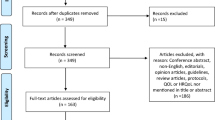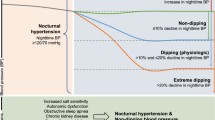Abstract
Background Non-adherence to antihypertensive treatment is currently considered one of the most significant risk factors in failure to achieve controlled blood pressure values. It is therefore extremely important to measure patient adherence to antihypertensive treatment. One way to measure adherence is through questionnaires. Numerous questionnaires for measuring adherence to antihypertensive treatment have been validated, but it not easy to choose one of them as being more appropriate than all of the others. Aim of the review The aim of this study was to identify and assess questionnaires designed to measure non-adherence to antihypertensive treatment, and to discuss their psychometric properties. Method A systematic review of the literature contained in PubMed and Scopus databases was undertaken to identify validated questionnaires on adherence to antihypertensive treatment up to October 2017. PRISMA guidelines were followed to conduct and report this review. Selection of articles and data extraction were performed by two independent researchers. When there was lack of agreement, a third researcher mediated in the discussion between the first two authors so that consensus could be reached. Results 39 articles were obtained containing 17 different questionnaires for measuring adherence to antihypertensive treatment. These questionnaires were validated in 15 countries. The number of items in the questionnaires ranged from three in QAM-Q to 33 in TAQPH. Hill-Bone compliance to high blood pressure therapy scale, Morisky-Green-Levine test and an 8-item Self-Reported Medication Adherence Measurement were the most widely validated questionnaires. Validity was analyzed more than reliability. Many of the questionnaires do not provide information on content validity. Construct validity and concurrent validity are analyzed in almost all of the questionnaires, and give highly variable results. By contrast, known-groups validity was not analyzed to any great degree. As regards reliability, almost all of the questionnaires provided Cronbach’s alpha information with reasonably acceptable results, but temporal stability was not analyzed to any great degree. Conclusion None of the questionnaires included in the review demonstrates fulfilling all of the validity tests (content validity, construct validity and criterion-related validity) and reliability tests (homogeneity and temporal stability) in an acceptable manner. Therefore, none of them can be considered a Gold Standard.

Similar content being viewed by others
References
NCD Risk Factor Collaboration. Worldwide trends in blood pressure from 1975 to 2015: a pooled analysis of 1479 population-based measurement studies with 19·1 million participants. Lancet Lond Engl. 2017;389:37–55.
The top 10 causes of death [Internet]. World Health Organ. http://www.who.int/news-room/fact-sheets/detail/the-top-10-causes-of-death. Accessed 18 Oct 2018.
Patricia MK, Megan W, Kristi R, Paul KW, Jiang H. Worldwide prevalence of hypertension: a systematic review. J Hypertens. 2004;22:11–9.
Mancia G, Rosei EA, Azizi M, Burnier M, Clement DL, Coca A, et al. ESC/ESH Guidelines for the management of arterial hypertension. Eur Heart J. 2018;39:3104-3021.
Costa F. Improving adherence to treatment and reducing economic costs of hypertension: the role of olmesartan-based treatment. High Blood Press Cardiovasc Prev. 2017;24:265–74.
Lehmann A, Aslani P, Ahmed R, Celio J, Gauchet A, Bedouch P, et al. Assessing medication adherence: options to consider. Int J Clin Pharm. 2014;36:55–69.
Moher D, Liberati A, Tetzlaff J, Altman DG, Group TP. Preferred reporting items for systematic reviews and meta-analyses: the PRISMA statement. PLOS Med. 2009;6:e1000097.
Liberati A, Altman DG, Tetzlaff J, Mulrow C, Gotzsche PC, Ioannidis JPA, et al. The PRISMA statement for reporting systematic reviews and meta-analyses of studies that evaluate healthcare interventions: explanation and elaboration. BMJ. 2009;339:b2700.
Kim MT, Hill MN, Bone LR, Levine DM. Development and testing of the Hill-Bone compliance to high blood pressure therapy scale. Prog Cardiovasc Nurs. 2000;15:90–6.
Krousel-Wood M, Jannu A, Re RN, Muntner P, Desalvo K. Reliability of a medication adherence measure in an outpatient setting. Am J Med Sci. 2005;330:128–33.
Lambert EV, Steyn K, Stender S, Everage N, Fourie JM, Hill M. Cross-cultural validation of the Hill-Bone compliance to high blood pressure therapy scale in a South African, primary healthcare setting. Ethn Dis. 2006;16:286–91.
Karademir M, Koseoglu IH, Vatansever K, Van Den Akker M. Validity and reliability of the Turkish version of the Hill-Bone compliance to high blood pressure therapy scale for use in primary health care settings. Eur J Gen Pract. 2009;15:207–11.
Song Y, Han H-R, Song H-J, Nam S, Nguyen T, Kim MT. Psychometric evaluation of Hill-Bone medication adherence subscale. Asian Nurs Res. 2011;5:183–8.
Uchmanowicz I, Jankowska-Polańska B, Chudiak A, Szymańska-Chabowska A, Mazur G. Psychometric evaluation of the Polish adaptation of the Hill-Bone compliance to high blood pressure therapy scale. BMC Cardiovasc Disord. 2016;16:87.
Morisky DE, Green LW, Levine DM. Concurrent and predictive validity of a self-reported measure of medication adherence. Med Care. 1986;24:67–74.
van de Steeg N, Sielk M, Pentzek M, Bakx C, Altiner A. Drug-adherence questionnaires not valid for patients taking blood-pressure-lowering drugs in a primary health care setting. J Eval Clin Pract. 2009;15:468–72.
Ben AJ, Neumann CR, Mengue SS. The brief medication questionnaire and Morisky–Green test to evaluate medication adherence. Rev Saude Publica. 2012;46:279–89.
Morisky DE, Ang A, Krousel-Wood M, Ward HJ. Predictive validity of a medication adherence measure in an outpatient setting. J Clin Hypertens. 2008;10:348–54.
Oliveira-Filho AD, Barreto-Filho JA, Neves SJF, de Lyra Junior DP. Association between the 8-item Morisky medication adherence scale (MMAS-8) and blood pressure control. Arq Bras Cardiol. 2012;99:649–58.
Korb-Savoldelli V, Gillaizeau F, Pouchot J, Lenain E, Postel-Vinay N, Plouin P-F, et al. Validation of a French version of the 8-item Morisky medication adherence scale in hypertensive adults. J Clin Hypertens Greenwich Conn. 2012;14:429–34.
Shin D-S, Kim C-J. Psychometric evaluation of a Korean version of the 8-item medication adherence scale in rural older adults with hypertension. Aust J Rural Health. 2013;21:336–42.
de Oliveira-Filho AD, Morisky DE, Neves SJF, Costa FA, de Lyra DP. The 8-item Morisky Medication adherence scale: validation of a Brazilian–Portuguese version in hypertensive adults. Res Soc Adm Pharm. 2014;10:554–61.
Kim J-H, Lee W-Y, Hong Y-P, Ryu W-S, Lee KJ, Lee W-S, et al. Psychometric properties of a short self-reported measure of medication adherence among patients with hypertension treated in a busy clinical setting in Korea. J Epidemiol. 2014;24:132–40.
Hacıhasanoğlu Aşılar R, Gözüm S, Çapık C, Morisky DE. Reliability and validity of the Turkish form of the eight-item Morisky medication adherence scale in hypertensive patients. Anadolu Kardiyol Derg AKD Anatol J Cardiol. 2014;14:692–700.
Moharamzad Y, Saadat H, Nakhjavan Shahraki B, Rai A, Saadat Z, Aerab-Sheibani H, et al. Validation of the Persian version of the 8-item Morisky medication adherence scale (MMAS-8) in Iranian hypertensive patients. Glob J Health Sci. 2015;7:173–83.
Pareja-Martínez E, Esquivel-Prados E, Franco L, García-Corpas JP. Adherence to antihypertensive therapy in community pharmacy: evaluating the psychometric properties of the Morisky medication adherence scale (MMAS-8) translated into Spanish. Pilot study. Lat Am J Pharm. 2015;34:86–93.
Gallagher BD, Muntner P, Moise N, Lin JJ, Kronish IM. Are two commonly used self-report questionnaires useful for identifying antihypertensive medication nonadherence? J Hypertens. 2015;33:1108–13.
Pandey A, Raza F, Velasco A, Brinker S, Ayers C, Das SR, et al. Comparison of Morisky medication adherence scale with therapeutic drug monitoring in apparent treatment-resistant hypertension. J Am Soc Hypertens JASH. 2015;9(420–426):e2.
Okello S, Nasasira B, Muiru ANW, Muyingo A. Validity and reliability of a self-reported measure of antihypertensive medication adherence in Uganda. PLoS ONE. 2016;11:e0158499.
Jankowska-Polanska B, Uchmanowicz I, Chudiak A, Dudek K, Morisky DE, Szymanska-Chabowska A. Psychometric properties of the Polish version of the eight-item Morisky medication adherence scale in hypertensive adults. Patient Prefer Adherence. 2016;10:1759–66.
Ogedegbe G, Mancuso CA, Allegrante JP, Charlson ME. Development and evaluation of a medication adherence self-efficacy scale in hypertensive African–American patients. J Clin Epidemiol. 2003;56:520–9.
Fernandez S, Chaplin W, Schoenthaler AM, Ogedegbe G. Revision and validation of the medication adherence self-efficacy scale (MASES) in hypertensive African Americans. J Behav Med. 2008;31:453–62.
Gozum S, Hacihasanoglu R. Reliability and validity of the Turkish adaptation of medication adherence self-efficacy scale in hypertensive patients. Eur J Cardiovasc Nurs J Work Group Cardiovasc Nurs Eur Soc Cardiol. 2009;8:129–36.
Hacihasanoğlu R, Gözüm S, Capik C. Validity of the Turkish version of the medication adherence self-efficacy scale-short form in hypertensive patients. Anadolu Kardiyol Derg AKD Anatol J Cardiol. 2012;12:241–8.
Saffari M, Zeidi IM, Fridlund B, Chen H, Pakpour AH. A Persian adaptation of medication adherence self-efficacy scale (MASES) in hypertensive patients: psychometric properties and factor structure. High Blood Press Cardiovasc Prev Off J Ital Soc Hypertens. 2015;22:247–55.
Ma C, Chen S, You L, Luo Z, Xing C. Development and psychometric evaluation of the treatment adherence questionnaire for patients with hypertension. J Adv Nurs. 2012;68:1402–13.
Dehghan M, Dehghan-Nayeri N, Iranmanesh S. Translation and validation of the Persian version of the treatment adherence questionnaire for patients with hypertension. ARYA Atheroscler. 2016;12:76–86.
de Santa Helena ET, Nemes MIB, Eluf-Neto J. Development and validation of a multidimensional questionnaire assessing non-adherence to medicines. Rev Saude Publica. 2008;42:764–7.
Zeller A, Schroeder K, Peters TJ. An adherence self-report questionnaire facilitated the differentiation between nonadherence and nonresponse to antihypertensive treatment. J Clin Epidemiol. 2008;61:282–8.
Pérez-Escamilla B, Franco-Trigo L, Moullin JC, Martínez-Martínez F, García-Corpas JP. Identification of validated questionnaires to measure adherence to pharmacological antihypertensive treatments. Patient Prefer Adherence. 2015;9:569–78.
Martín Alfonso L, Bayarre Vea HD, Grau Ábalo JA. Validación del cuestionario MBG (Martín-Bayarre-Grau) para evaluar la adherencia terapéutica en hipertensión arterial. Rev Cuba Salud Pública [Internet]. 2008. http://scielo.sld.cu/scielo.php?script=sci_arttext%26pid=S0864-34662008000100012. Accessed 10 Dec 2019.
Martínez JW, Villa Perea JA, Jaramillo J, Quintero Betancur AM, Calderón V. Validación del cuestionario de adherencia al tratamiento anti hipertensivo Martín Bayarré Grau. Rev Med Risaralda. 2011;17:101–5.
Strainer DL, Norman GR, Cairney J. Health measurement scales. A practical guide to their development and use. 5th ed. Oxford: Oxford University Press; 2015.
DeVellis RF. Scale development. Theory and applications. 3rd ed. California: Sage Publication; 2012.
Powell KR, Peterson SR. Coverage and quality: a comparison of web of science and scopus databases for reporting faculty nursing publication metrics. Nurs Outlook. 2017;65:572–8.
Johnson MJ, Rogers S. Development of the purposeful action medication-taking questionnaire. West J Nurs Res. 2006;28:335–51.
Wetzels G, Nelemans P, van Wijk B, Broers N, Schouten J, Prins M. Determinants of poor adherence in hypertensive patients: development and validation of the «Maastricht Utrecht Adherence in Hypertension (MUAH)-questionnaire». Patient Educ Couns. 2006;64:151–8.
He W, Bonner A, Anderson D. Patient reported adherence to hypertension treatment: A revalidation study. Eur J Cardiovasc Nurs. 2016;15:150–6.
Acknowledgements
The authors would like to acknowledge the assistance provided by Lucía Franco Trigo in this systematic review. This article is part of the doctoral thesis submitted by Elisa Pareja Martínez to obtain a Doctorate in Pharmacy at the University of Granada, Spain.
Funding
The authors declare this study has not received any funding.
Conflicts of interest
The authors declare that they have no conflict of interest.
Author information
Authors and Affiliations
Corresponding author
Additional information
Publisher's Note
Springer Nature remains neutral with regard to jurisdictional claims in published maps and institutional affiliations.
Rights and permissions
About this article
Cite this article
Pareja-Martínez, E., Esquivel-Prados, E., Martínez-Martínez, F. et al. Questionnaires on adherence to antihypertensive treatment: a systematic review of published questionnaires and their psychometric properties. Int J Clin Pharm 42, 355–365 (2020). https://doi.org/10.1007/s11096-020-00981-x
Received:
Accepted:
Published:
Issue Date:
DOI: https://doi.org/10.1007/s11096-020-00981-x




